#Aida Overton Walker
Explore tagged Tumblr posts
Text
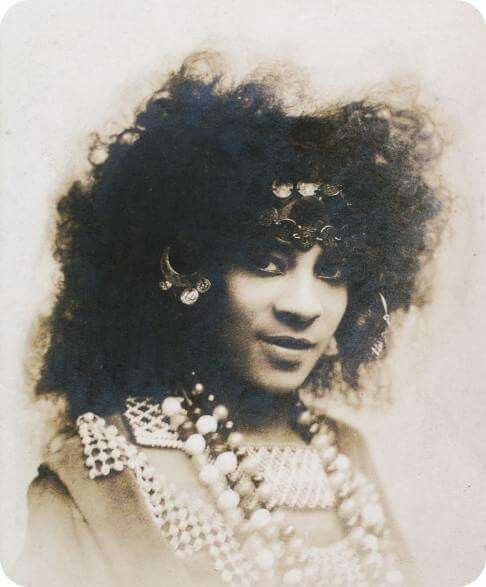
Aida Overton Walker aka Queen Of The Catwalk.
14 notes
·
View notes
Text
Something possessed me. First thing I’ve drawn in months.

#didn’t turn out how I liked but I created something!#newsies#miss medda larkin#miss medda#Aida overton Walker#<- she was the ref pic
16 notes
·
View notes
Text
Hot Vintage Stage Actress Round 3
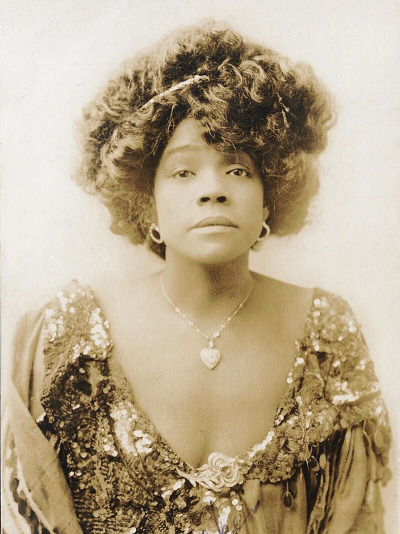
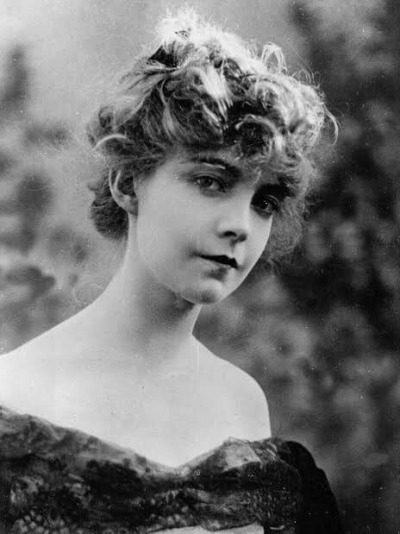
Aida Overton Walker: Miss Hannah from Savannah in Sons of Ham (1900 Off-Broadway); Rosetta Lightfoot in In Dahomey (1903 Broadway); Bandanna Land (1912 Broadway)
Dorothy Gish: Fay Hilary in Young Love (1928 Broadway); Helen Storer in Mainly for Lovers (1936 Broadway); Mary Surratt in The Story of Mary Surratt (1947 Broadway)
Propaganda under the cut.
Aida Overton Walker:
As fucking gorgeous as she looks in every picture ever that exists of her, it makes me so so sad that there aren’t any photos of her when she was a drag king in her vaudeville shows, I just know that if I had seen that back in ye olden days my heart would explode
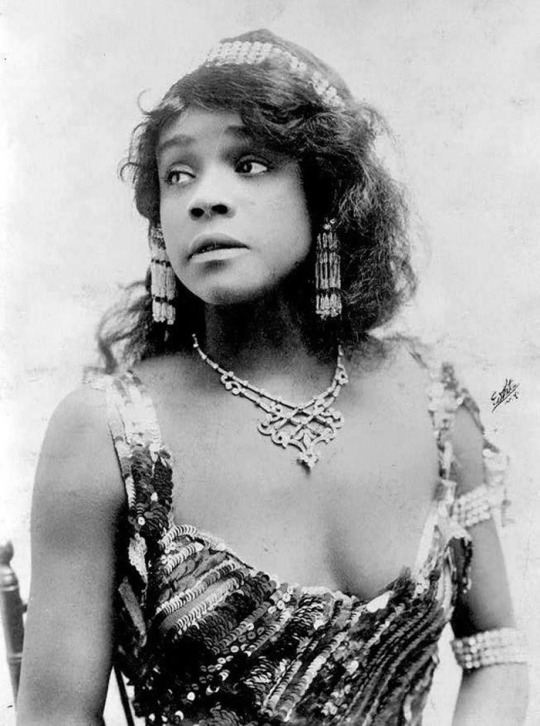
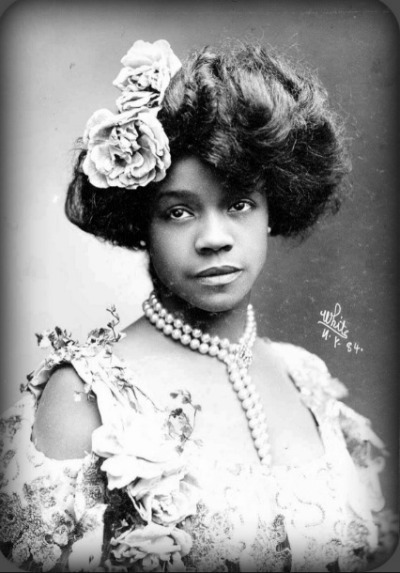
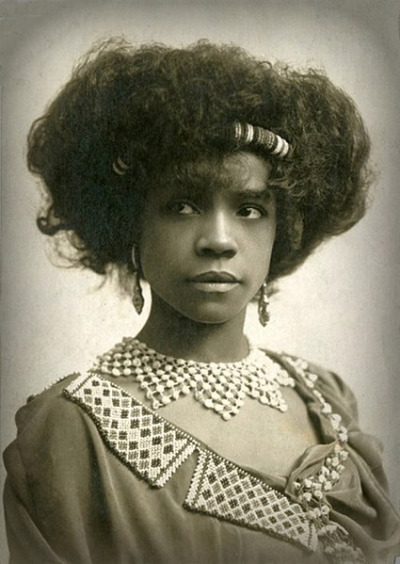
Dorothy Gish:
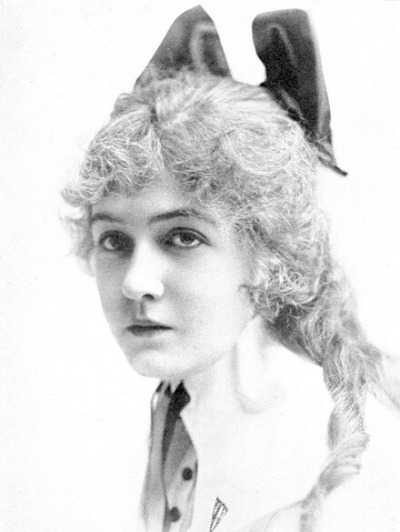
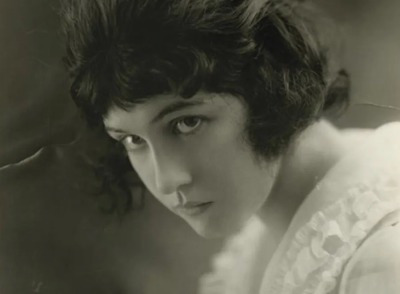
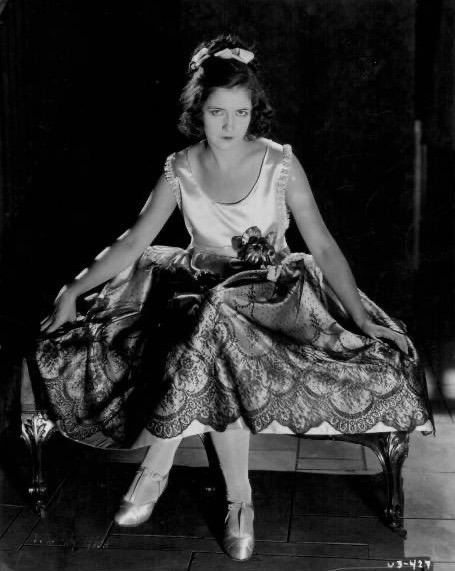
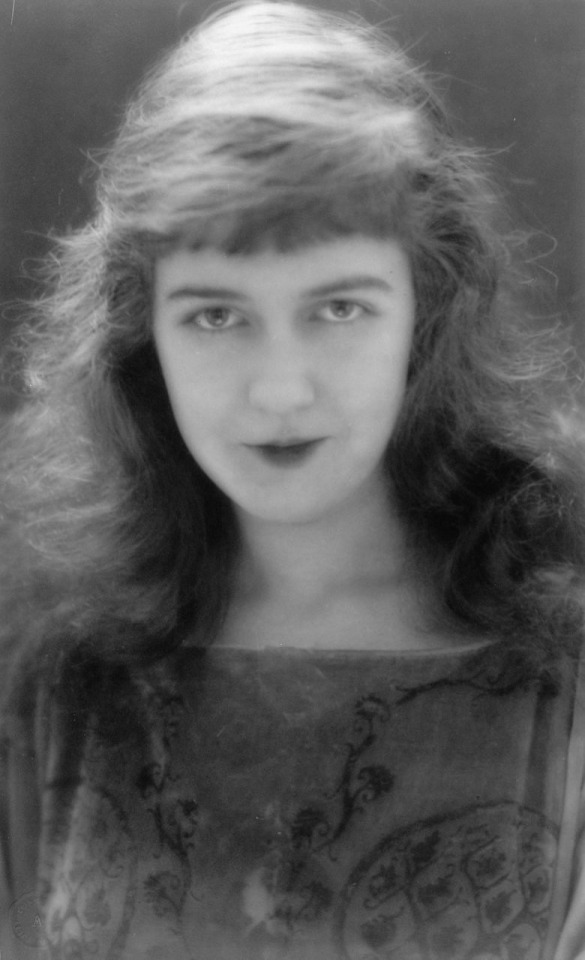
#vintagestagehotties#vintagestagepoll#vintage ladies#vintage poll#vintage tournament#aida overton walker#dorothy gish#ladies round 3
18 notes
·
View notes
Text

Lady of The Day 🌹 Aida Overton Walker ❤️
27 notes
·
View notes
Text
AIDA OVERTON WALKER // PERFORMER
“She was an American vaudeville performer, actress, singer, dancer, choreographer, and wife of vaudevillian George Walker. She appeared with her husband and his performing partner Bert Williams, and in groups such as Black Patti's Troubadours. She was also a solo dancer and choreographer for vaudeville shows such as Bob Cole, Joe Jordan, and J. Rosamond Johnson's The Red Moon (1908) and S. H. Dudley's His Honor the Barber (1911).”


3 notes
·
View notes
Text
15 des plus belles femmes de 1900
Nouvel article publié sur https://www.2tout2rien.fr/15-des-plus-belles-femmes-de-1900/
15 des plus belles femmes de 1900

#20eme siecle#actrice#Aida Overton Walker#années 1900#années 1910#années 1920#Annette Kellerman#Annette Marie Sarah Kellerman#beaute#Billie Burke#Camille Clifford#Ethel Barrymore#Ethel Clayton#Ethel Warwick#Evelyn Nesbit#femme#Geneviève Lantelme#Gladys Cooper#Julia James#Lily Elsie#Marie Doro#Maude Fealy#Minnie Brown#noir et blanc#vintage#imxok#people
2 notes
·
View notes
Photo
I don't see as much art at this time in history. I do genealogy, and I often think of what my ancestors went through. It's nice to see joy from this time.

Aida Overton Walker (1880 to 1914) also known as “The Queen of the Cakewalk.“ American vaudeville performer, actress, singer, dancer, choreographer, and wife of vaudevillian George Walker.
Artwork by Abbi Udell
1K notes
·
View notes
Text

Aida Overton Walker
23 notes
·
View notes
Text
Alright y'all, buckle up.
Bad news :( Irving Hall/Irving Place Theatre was not, in fact, the location of the real 1899 newsies rally.
GOOD NEWS! :D I have found that the real location of the rally was the New Irving Hall at Norfolk and Broome Streets.
BAD NEWS!! :( New Irving Hall was not a theater. It appears to have been simply an event hall, meaning that "Medda's Theatre" that we all know and love is not actually historically accurate to the real 1899 strike.
Allow me to explain this revelation.
As far as I'm aware, the stage version of Newsies does not ever provide a name for Medda's theatre other than that it was located vaguely on/in the Bowery. Meanwhile, the 1992 film clearly gives us the name of the theater as 'Irving Hall.'
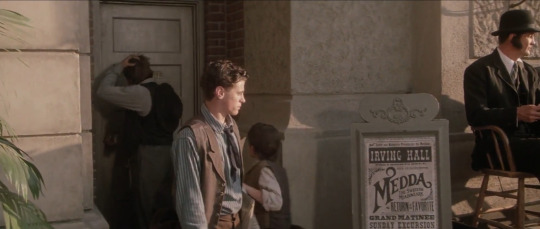

When you do a google search for Irving Hall or Irving Hall theatre in NYC in the 1890s, the top (and pretty much only) result is Irving Place Theatre which was originally Irving Hall, a venue not a theater, that opened in 1860. Irving Hall/Irving Place Theatre seems to check out as the historical basis for Medda's theatre then. Right? Well...
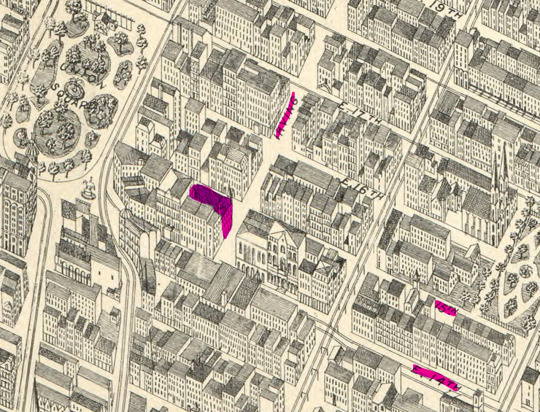
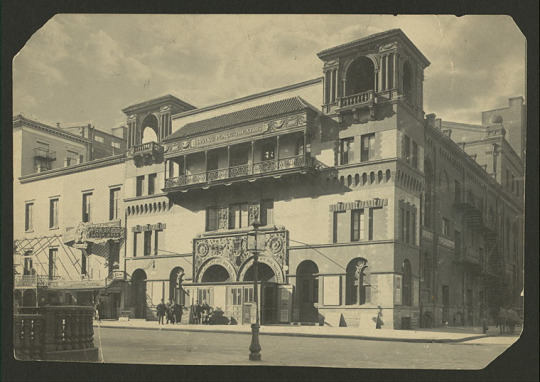
Irving Place Theatre. Map and photo from my previous post on newsies locations
Over the years, many newsies fans have landed on Irving Place Theatre as being 'Medda's Theatre.' But Irving Place Theatre was located at Irving Place and 15th streets, a far cry from the Bowery as the musical claims. So I did some digging trying to figure out if perhaps the musical had chosen a different theater for Medda, perhaps one that Aida Overton Walker was involved with. But I found something else instead.
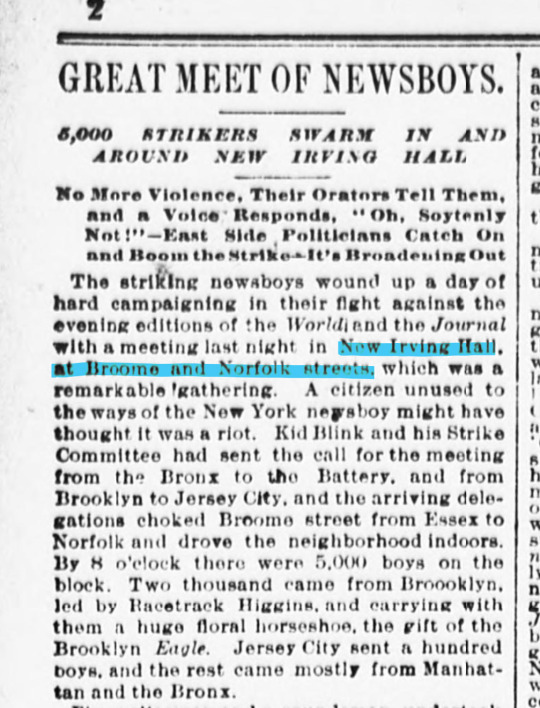
Great Meet of Newsboys. The New York Sun, July 25, 1899, page 2.
When you go back and consult primary sources from the real 1899 newsboys' strike, you find that the rally was held not at Irving Place Theatre or Irving Hall on Irving Place and 15th, but that it was held at New Irving Hall at Broome and Norfolk streets.
I went down a rabbit hole trying to find information on New Irving Hall in NYC in the 1890s and came up with almost nothing. But I did go back to my map and found Broome and Norfolk, which I discovered to be much closer to the Bowery (highlighted below in yellow) than Irving Place Theatre was.
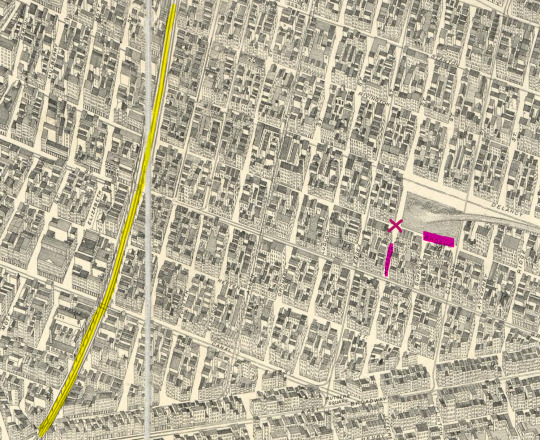
Marked in pink, relative location of New Irving Hall in the Lower East Side of Manhattan.
At last, I found a single 2019 article with information on New Irving Hall and found out two important details.
First, that New Irving Hall seems to have been built or at least turned into a hall in the late 1890s and then burnt down in 1907. This narrow timeline could explain the lack of historical resources on New Irving Hall and the predominance of Irving Place Theatre in search results.
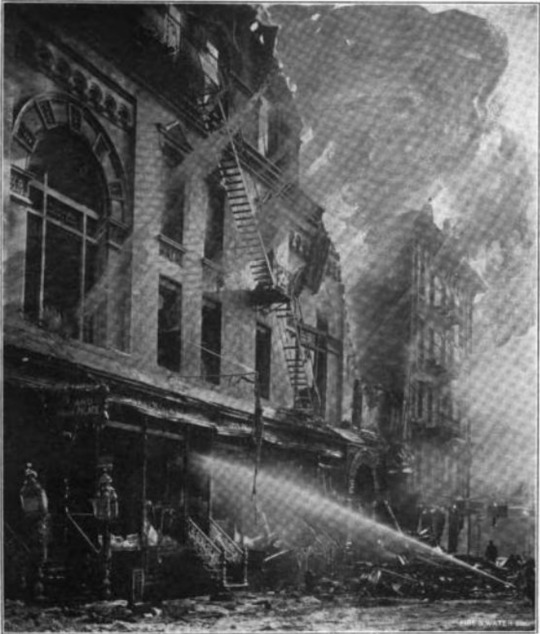
New Irving Hall, New York, on fire. Fire and Water Engineering, Volume 41, 1907. The only photo or illustration of New Irving Hall I could find.
Second, New Irving Hall was not a theater. New Irving Hall, like Irving Hall before the year 1888, was just a venue hall or dance hall for events. In it's short history, it was used for fundraising concerts, political and cultural events (the hall had many ties to the local Jewish community in particular), weddings, gang activity, and the newsboys' rally in 1899. But never was it a theater.
To circle back to Irving Place Theatre, the theater was originally called Irving Hall when it was built in 1860 and was rebuilt as a theater in 1888. While I can't back this up with any concrete evidence, I think it may be safely inferred that New Irving Hall, which begins to show up in records in the late 1890s, was possibly built because the original or old Irving Hall was converted from venue hall to theater.
In a 1916 Times article, Irving Place Theatre is referred to as "old Irving Hall," implying that New Irving Hall is/was in fact the new location of Irving Hall.
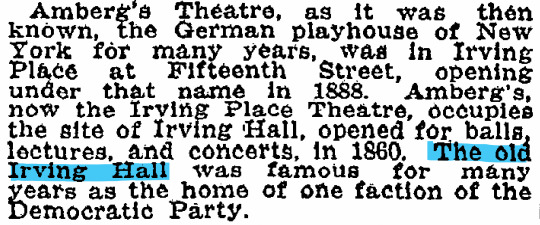
Union Square Loses Its Old Residences. The New York Times, June 18, 1916.
This potential link between the two might also be the reason why the Irving Hall of Newsies seems to take inspiration from both the Irving Place Theatre and New Irving Hall.
Medda's theatre is a mix of fact and fiction. According the the stage musical, Medda's is located in some connection to the Bowery like New Irving Hall. But the very fact that Medda's theatre is a theater means that Irving Place Theatre is just as likely the inspiration.
In conclusion, the real location of the newsies' rally was New Irving Hall, and New Irving Hall was not a theater. However, the theater in Newsies, Medda's theater, blurs the distinction between Irving Place Theatre and New Irving Hall and likely took inspiration from both places.
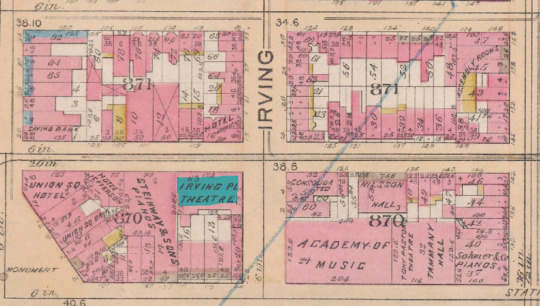
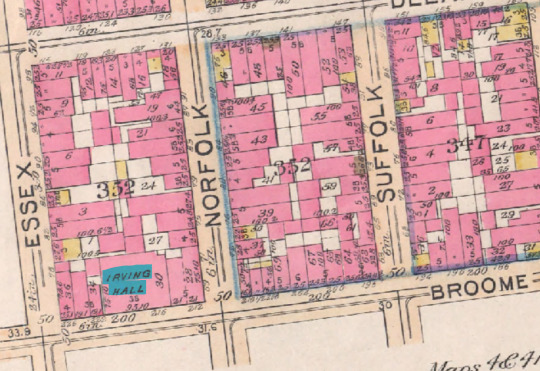
Top: Irving Place Theatre (highlighted blue). 1897 map. Bottom: Irving Hall (highlighted blue). 1897 map.
#so sorry if this ruins anyone's childhood#but unfortunately the newsies did not hold a rally in a theater#newsies#newsies 1992#1992sies#92sies#newsies the musical#medda larkson#medda larkin#newsies historical research#maps#history#nerd alert!
25 notes
·
View notes
Text

Aida Overton Walker (February 14, 1880 – October 11, 1914) billed as Ada Overton Walker and as “The Queen of the Cakewalk”, was a vaudeville performer, actress, singer, dancer, choreographer, and wife of vaudevillian George Walker. She appeared with her husband and his performing partner Bert Williams, and in groups such as Black Patti’s Troubadours. She was a solo dancer and choreographer for vaudeville shows such as Bob Cole, Joe Jordan, The Red Moon, and His Honor the Barber. She is known for her performance of the “Salome” dance at the Victoria Theatre. This was her response to the national “Salomania” craze that spread through the white vaudeville circuit.
She was born in New York City to Moses and Pauline. Her occupation was recorded as a waiter. Her name was spelled ‘Ada’, but this kind of misspelling is common in census records.
She gained an education and considerable musical training. At 15, she joined “Octoroons,” a Black touring group. She married George Walker (1899-1911).
She gained national attention in 1900, with her performance of “Miss Hannah from Savannah” in the show Sons of Ham. She was known for her work in musical theater. Her song and dance made her an instant hit with audiences at the time. She, Walker, and Williams worked together on such musicals as In Dahomey, In Abyssinia, and Bandanna Land. After two seasons in England touring with In Dahomey, the group returned to New York.
Her career and performances were praised by critics. Her husband fell ill and the partners closed In Dahomey in 1909. She left the stage for a time to care for her husband.
She joined the Smart Set Company. She began touring the vaudeville circuit as a solo act. She performed in His Honor the Barber with Smart Set Company. She performed as a male character in Lovie Dear, as well as in Bandanna Land, in which she took over her husband’s role.
Her husband died in 1911. In 1912, she went on tour with her show for 16 weeks, then returned to New York, where she performed as Salome at the Paradise Roof Garden on Broadway. She had continued performing two months before her death. #africanhistory365 #africanexcellence
3 notes
·
View notes
Text
Aida Overton Walker was an iconic dancer and choreographer on the Vaudeville circuit. She performed solo and in chorus lines, she dressed in drag and in the finest female fashions of the day... in short, Aida did it all. She died young - in her early 30s - due to kidney failure, but her legacy in the performing arts lives on.
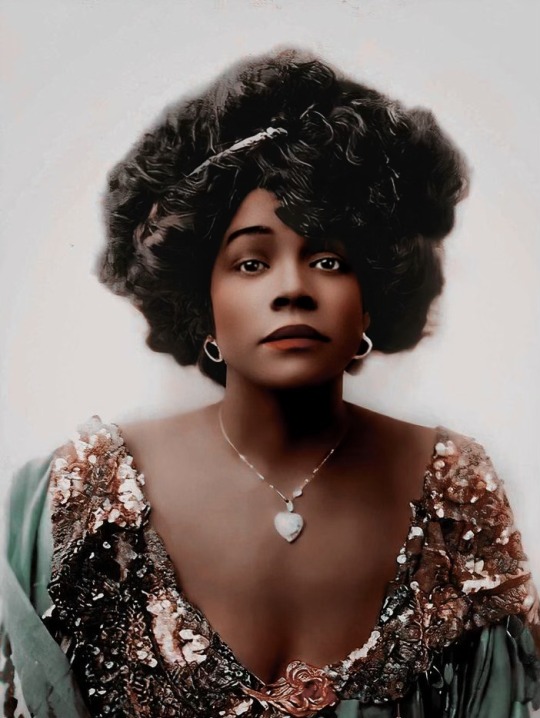
11 notes
·
View notes
Text
I wrote this poem exclusively for my Root Beer patrons (20$). I wrote it thinking of Aida Overton Walker, the "Queen of Cakewalk", choreographer, dancer, actress, singer, who was a legendary performer and an imprint in the history of Black performance. She was a sublime artist, and she eargely championed Black women getting on the stage and exercising their skills and artistry. And so the title is a parallel of her voice.


Archival photographs of Aida Overton Walker, The "Queen of Cakewalk", Queen of The Vaudeville Circuit, dancer, singer, choreographer, actress
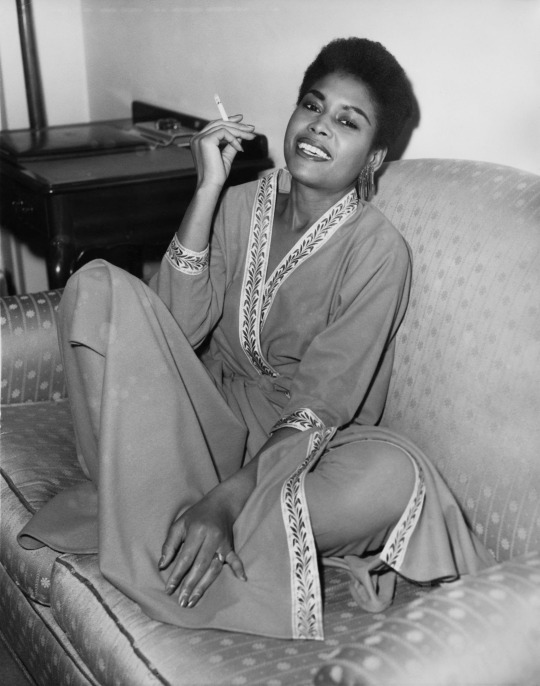
Abbey Lincoln was a jazz vocalist and songwriter.
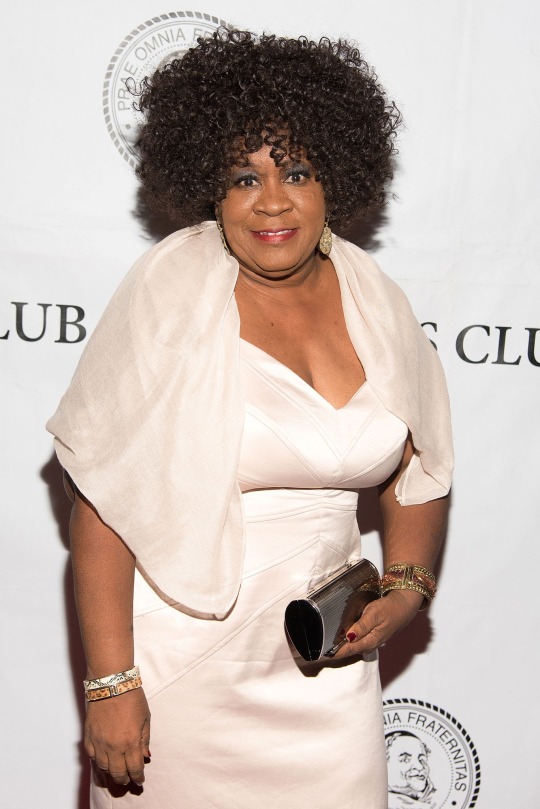
Bobby Humphrey is a flutist and singer. Her works have been sampled by the like of Digable Planets, Eric B & Rakim, Ludacris.

Megan Thee Stallion is a rapper, performer, dancer, actress. In simultaneity with her artistic craft as a Black female performer, she is an entrepreneur and has an educational background in health administration.

Missy Elliott is a songwriter, a producer, a rapper, a worldmaker, a performer, and a constant innovator.
The visual archives above best visually describe the poem. Here are some excerpts to whet your appetite:
We nod and nod and nod and nod; a sign of reluctance and wistfulness.
We're a leg lifted across a graceful back, a waste of shoulder: more oil in the voice.
and
Cars pace up the streets slurry with neutered teeth, a familiar grit, nobody smiling.
In every room there can be, an attempt at proper dislocation, sleepless beer.
and
Is she middle of the night curling, a head tense with needle marks, pointing ?
We resemble the carpeted grass of molten glass, the cake cracklings.
17 notes
·
View notes
Text
i want someone to draw miss medda but like that on pic of aida overton walker where its all weather worn and old timey and she looks so dreamy.. hold on lemme find it
7 notes
·
View notes
Text
Hot Vintage Stage Actress Round 4


Theda Bara: Mme Schleswig in The Devil (1908 Broadway); Ruth Gordon in The Blue Flame (1920 Broadway)
Aida Overton Walker: Miss Hannah from Savannah in Sons of Ham (1900 Off-Broadway); Rosetta Lightfoot in In Dahomey (1903 Broadway); Bandanna Land (1912 Broadway)
Propaganda under the cut. Semi NSFW propaganda below cut.
Theda Bara:
THE GREATEST VAMP ICON TO HAVE EVER LIVED




Aida Overton Walker:
As fucking gorgeous as she looks in every picture ever that exists of her, it makes me so so sad that there aren’t any photos of her when she was a drag king in her vaudeville shows, I just know that if I had seen that back in ye olden days my heart would explode



#vintagestagehotties#vintagestagepoll#vintage tournament#vintage poll#vintage ladies#theda bara#aida overton walker#ladies round 4
12 notes
·
View notes
Note
Hey i can't see anything about auditions for Medda I was wondering if you've already found one or if you just weren't auditioning her yet
The post is right here (you have to scroll down really far to get to it)
3 notes
·
View notes
Text
Only some of the women of the strike, including the ones Katherine Plumber and Medda Larkin were influenced by <33
Not to sound preachy but truly the Sexism surrounding the female characters in newsies is never ending.
These characters canonically have depth, and if you can’t find that, you clearly haven’t cared to look
and adding female characters, especially an independent, complex female character to the stage production was very important
Making the Brooklyn newsies girls was important
it is historically relevant, Annie the brick of all women and most faithful of the strikers, and Nellie Bly and a litany of other real women of that era who impacted things are So Important and Should Have Space in the historical fiction that surrounds their time and events
That is all, thank you
#once again#you can love whoever you want#have whatever favourite characters you want#but demeaning the women to favour those people#is not necessary
376 notes
·
View notes